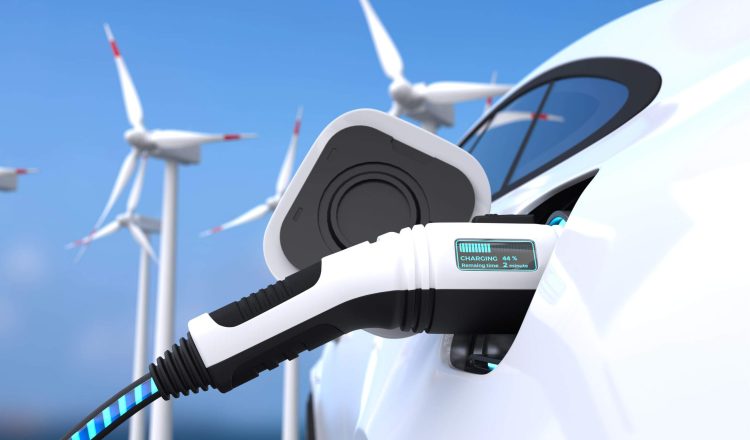In the face of global climate challenges, Africa is witnessing a promising shift from gasoline-powered vehicles to electric vehicles (EVs). Despite high conversion costs and infrastructure gaps, several African nations are making notable strides in EV adoption. A 2024 report by market research firm Rho Motion highlighted a 31% increase in global EV sales compared to 2022, reflecting a broader trend towards sustainable transportation. Here are the leading African countries driving this revolution.
1. South Africa: A Pioneering Force
South Africa is at the forefront of Africa’s EV movement. Government projections in 2020 estimated about 6,000 electric vehicles (EVs), both fully electric and hybrid. The country’s National Association of Automobile Manufacturers (Naamsa) anticipates introducing at least eight new EV models in 2024. South Africa is also exploring local EV manufacturing, with the first fully manufactured electric vehicle expected by 2026.
2. Morocco: A Manufacturing Powerhouse
Morocco boasts over 10,000 hybrid vehicles as of 2022, according to the Société Nationale des Autoroutes du Maroc. The country is home to major car manufacturers like Renault and Stellantis and aims to produce one million cars by 2025, with EVs constituting up to 60% of car exports by 2030. Investments in battery manufacturing are accelerating Morocco’s EV ambitions.
3. Kenya: Incentivizing Growth
Kenya’s EV registrations reached 3,753 in 2023, with 2,694 new EVs registered between July and December 2023, thanks to government incentives. While the number of fully electric four-wheelers is still low, the introduction of the Electric Mobility Draft Policy aims to have 5% of all vehicle registrations be electric by 2025.
4. Tanzania: Two and Three-Wheelers Leading the Charge
Tanzania’s EV market is dominated by electric two and three-wheelers, with an estimated 5,000 EVs in 2023, according to the Africa Mobility Alliance. The presence of models like the Tesla Model S and Renault Zoe indicates a growing interest in electric four-wheelers.
5. Angola: Strategic Policy Support
Angola has up to 1,000 electric four-wheelers, supported by policies offering import and vehicle tax reductions until 2032. The country’s electro-mobility strategic plan is set to further boost EV growth, with an additional 2,000 EV imports expected from the United States in 2024.
6. Ghana: A Leader in EV Incentives
Ghana has approximately 17,000 registered EVs, including two and three-wheelers. The government’s 2023/24 Budget Speech outlined plans to waive import duties on EVs for eight years and extend VAT exemptions on locally assembled vehicles for two more years, aiming to significantly expand the EV sector.
7. Rwanda: Policy-Driven Expansion
Rwanda’s EV market is growing, with nearly 900 electric vehicles reported by UNEP in 2022. The entry of Tesla and the support from Kenyan startup BasiGo highlight Rwanda’s commitment to electrifying transportation, with a notable increase in electric two and three-wheelers.
8. Egypt: Ambitious Production Plans
Estimates suggest Egypt had between 3,500 and 4,000 EVs in 2023, a significant rise from previous years. The government plans to support local EV production, targeting 100,000 units in the coming years by covering up to 35% of production costs per unit.
9. Ethiopia: Incentive-Driven Growth
Cleantechnica.com estimates that Ethiopia had 5,000 to 7,000 EVs in 2023. Government incentives, including tax exemptions, are driving this growth. The Ministry of Transport and Logistics aims to import 4,800 electric buses and 148,000 electric automobiles over the next decade.
10. Benin: A Hub for Electric Motorcycles
With over 3,000 electric vehicles, primarily motorcycles, Benin is emerging as a key player in West Africa’s EV market. Private startups like Spiro are leading the charge, aiming to electrify the country’s 150,000 motorcycles. Significant investments in charging infrastructure are supporting this transformation.
Read also: Four Things You Must Know Before Starting Your Own Business
Nigeria to Launch State-of-the-Art Data Centre: A Leap Towards Technological Advancement
- Tags: Africa EV adoption, Angola EV policies, Benin electric motorcycles, Egypt electric vehicle production, Electric vehicles in Africa, Ethiopia EV growth, Ghana electric vehicle incentives, Kenya electric vehicle incentives, Morocco EV market, Rwanda electric vehicles, South Africa electric vehicles, Sustainable transportation in Africa, Tanzania electric two-wheelers





